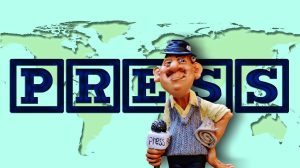
Top 25 Chief Financial Officer Interview Questions to Assess Financial Leadership
Introduction
In today’s rapidly evolving business landscape, the role of a Chief Financial Officer (CFO) has never been more critical. CFOs are not just the financial stewards of an organization; they are strategic partners who drive growth, manage risks, and ensure the financial health of the company. As such, hiring the right CFO is a pivotal decision that can significantly impact an organization’s success.
To identify the best candidate for this crucial role, it’s essential to ask the right questions during the interview process. These questions should not only assess the candidate’s technical financial expertise but also their leadership capabilities, strategic thinking, and ability to navigate complex financial challenges. In this article, we present the top 25 CFO interview questions designed to evaluate a candidate’s financial leadership and ensure they are the right fit for your organization.
Importance of Assessing Financial Leadership
Strategic Vision and Direction
A Chief Financial Officer (CFO) plays a pivotal role in shaping the strategic vision and direction of an organization. Assessing financial leadership ensures that the candidate has the ability to align financial strategies with the company’s long-term goals. This involves evaluating their experience in strategic planning, forecasting, and their ability to anticipate market trends and economic shifts. A CFO with a strong strategic vision can drive the company towards sustainable growth and profitability.
Risk Management
Effective financial leadership is crucial for identifying, assessing, and mitigating financial risks. A CFO must be adept at managing risks related to market volatility, regulatory changes, and operational challenges. By assessing a candidate’s risk management skills, organizations can ensure that they are equipped to handle potential financial crises and uncertainties. This includes their ability to implement robust internal controls, compliance measures, and risk assessment frameworks.
Financial Performance and Accountability
A key aspect of financial leadership is the ability to drive financial performance and maintain accountability. This involves setting financial targets, monitoring performance metrics, and ensuring that financial resources are utilized efficiently. Assessing a CFO’s track record in improving financial performance, managing budgets, and achieving financial objectives is essential. It also includes their ability to provide transparent and accurate financial reporting to stakeholders.
Leadership and Team Management
The role of a CFO extends beyond financial management to include leadership and team management. Assessing financial leadership involves evaluating the candidate’s ability to lead and inspire a finance team, foster a collaborative work environment, and develop talent within the organization. Strong leadership skills are necessary for driving change, managing conflicts, and ensuring that the finance team operates effectively and cohesively.
Communication and Stakeholder Engagement
Effective communication and stakeholder engagement are critical components of financial leadership. A CFO must be able to articulate financial strategies, performance, and risks to various stakeholders, including the board of directors, investors, and employees. Assessing a candidate’s communication skills ensures that they can convey complex financial information in a clear and concise manner, build trust, and foster positive relationships with stakeholders.
Innovation and Adaptability
In today’s rapidly changing business environment, innovation and adaptability are essential traits for financial leaders. Assessing financial leadership involves evaluating a candidate’s ability to embrace new technologies, drive financial innovation, and adapt to changing market conditions. This includes their experience with digital transformation, data analytics, and implementing innovative financial solutions that enhance efficiency and competitiveness.
Ethical Standards and Integrity
High ethical standards and integrity are fundamental to effective financial leadership. A CFO must demonstrate a commitment to ethical practices, transparency, and corporate governance. Assessing a candidate’s ethical standards involves examining their past conduct, decision-making processes, and adherence to regulatory and compliance requirements. Ensuring that a CFO upholds strong ethical principles is crucial for maintaining the organization’s reputation and trustworthiness.
General Background and Experience Questions
Professional Journey
Can you walk us through your career path and how you arrived at your current position?
This question aims to understand the candidate’s professional journey, including key roles, responsibilities, and achievements that have shaped their career. It provides insight into their growth, adaptability, and the experiences that have prepared them for the CFO role.
What motivated you to pursue a career in finance?
Understanding the candidate’s motivation for choosing a finance career can reveal their passion, commitment, and long-term vision. It also helps gauge their enthusiasm for the role and the industry.
Educational Background
What is your educational background, and how has it prepared you for a CFO role?
This question explores the candidate’s academic qualifications, including degrees, certifications, and any specialized training. It assesses how their education has equipped them with the knowledge and skills necessary for financial leadership.
Have you pursued any additional certifications or training relevant to the CFO role?
Certifications such as CPA, CFA, or MBA can significantly enhance a candidate’s qualifications. This question evaluates their commitment to continuous learning and professional development.
Industry Experience
Can you describe your experience in our industry and how it has prepared you for this role?
Industry-specific experience is crucial for a CFO. This question assesses the candidate’s familiarity with industry trends, challenges, and best practices, ensuring they can effectively navigate the financial landscape of the organization.
How have you adapted to changes and disruptions in the industry throughout your career?
The ability to adapt to industry changes is vital for a CFO. This question evaluates the candidate’s resilience, strategic thinking, and ability to lead through periods of uncertainty and transformation.
Leadership and Management
Can you provide examples of how you have led and developed finance teams in the past?
Leadership skills are essential for a CFO. This question seeks specific examples of how the candidate has successfully managed and developed finance teams, highlighting their leadership style and effectiveness.
How do you approach decision-making and problem-solving in your role as a financial leader?
Understanding the candidate’s decision-making and problem-solving approach provides insight into their strategic thinking, analytical skills, and ability to handle complex financial challenges.
Achievements and Contributions
What are some of your most significant achievements in your previous roles?
This question focuses on the candidate’s track record of success, asking them to highlight key accomplishments that demonstrate their capability and impact as a financial leader.
Can you discuss a time when you successfully implemented a major financial initiative or project?
Implementing major financial initiatives requires strategic planning, execution, and leadership. This question assesses the candidate’s ability to drive significant projects that contribute to the organization’s financial health and growth.
Challenges and Learning
What has been the most challenging aspect of your career, and how did you overcome it?
Understanding the challenges a candidate has faced and how they overcame them provides insight into their resilience, problem-solving skills, and ability to learn from difficult situations.
Can you share an experience where you had to make a difficult financial decision? What was the outcome?
This question evaluates the candidate’s ability to make tough decisions under pressure, their rationale behind those decisions, and the outcomes, highlighting their judgment and accountability.
Future Aspirations
What are your long-term career goals, and how does this role align with them?
Understanding the candidate’s long-term career aspirations helps assess their alignment with the organization’s vision and their potential for growth within the company.
How do you stay updated with the latest trends and developments in finance?
Staying current with industry trends is crucial for a CFO. This question evaluates the candidate’s commitment to continuous learning and their proactive approach to staying informed about the latest financial developments.
Technical and Financial Acumen Questions
Understanding of Financial Statements
How do you ensure the accuracy and integrity of financial statements?
A CFO must demonstrate a thorough understanding of financial statements and the processes involved in ensuring their accuracy. This includes discussing internal controls, audit processes, and the use of financial software. The candidate should explain their approach to regular reviews, reconciliations, and the implementation of checks and balances to prevent errors and fraud.
Can you walk us through your process for preparing a financial forecast?
This question assesses the candidate’s ability to predict future financial performance based on historical data, market trends, and business strategies. The candidate should detail their methodology, including the types of data they analyze, the tools they use, and how they incorporate input from various departments.
Budgeting and Financial Planning
Describe your experience with developing and managing budgets.
The candidate should provide examples of their experience in creating and overseeing budgets. This includes their approach to aligning the budget with the company’s strategic goals, monitoring expenditures, and making adjustments as necessary. They should also discuss how they communicate budget expectations and performance to stakeholders.
How do you handle budget variances?
This question evaluates the candidate’s problem-solving skills and their ability to manage financial discrepancies. The candidate should explain their process for identifying the root causes of variances, implementing corrective actions, and communicating the impact to relevant parties.
Financial Analysis and Reporting
What financial metrics do you consider most important for assessing a company’s performance?
The candidate should identify key performance indicators (KPIs) they use to evaluate financial health, such as revenue growth, profit margins, return on investment (ROI), and cash flow. They should explain why these metrics are important and how they use them to make informed decisions.
How do you present complex financial information to non-financial stakeholders?
This question assesses the candidate’s communication skills and their ability to translate financial data into actionable insights for various audiences. The candidate should discuss their approach to simplifying complex information, using visual aids like charts and graphs, and tailoring their message to the audience’s level of financial literacy.
Risk Management and Compliance
How do you approach risk management in financial planning?
The candidate should describe their strategies for identifying, assessing, and mitigating financial risks. This includes discussing their use of risk assessment tools, scenario analysis, and contingency planning. They should also highlight their experience with regulatory compliance and ensuring that the company adheres to financial laws and standards.
Can you provide an example of a time when you identified a significant financial risk and how you addressed it?
This question seeks a specific example to gauge the candidate’s practical experience with risk management. The candidate should detail the situation, the steps they took to identify and assess the risk, the actions they implemented to mitigate it, and the outcome of their efforts.
Investment and Capital Allocation
How do you evaluate potential investment opportunities?
The candidate should explain their criteria for assessing investment opportunities, including financial metrics, market conditions, and strategic alignment with the company’s goals. They should discuss their due diligence process, risk assessment, and how they balance short-term gains with long-term growth.
Describe your experience with capital allocation and funding strategies.
This question assesses the candidate’s ability to manage the company’s financial resources effectively. The candidate should discuss their approach to prioritizing investments, managing debt, and optimizing the capital structure. They should also provide examples of successful funding strategies they have implemented in the past.
Strategic Thinking and Problem-Solving Questions
Assessing Long-Term Vision
How do you align financial strategies with the overall business goals?
This question evaluates the candidate’s ability to integrate financial planning with the company’s broader objectives. A strong answer should demonstrate an understanding of the company’s mission, vision, and strategic goals, and how financial strategies can support and drive these elements forward.
Can you provide an example of a time when you had to pivot a financial strategy due to market changes?
This question assesses adaptability and strategic foresight. The candidate should describe a specific instance where they identified a market shift, reassessed the financial strategy, and implemented changes to mitigate risks or capitalize on new opportunities.
Problem-Solving in Financial Management
Describe a complex financial problem you have faced and how you resolved it.
This question aims to uncover the candidate’s problem-solving skills and their approach to tackling intricate financial issues. The response should include the nature of the problem, the steps taken to analyze and address it, and the outcome of their actions.
How do you prioritize financial issues when multiple problems arise simultaneously?
This question evaluates the candidate’s ability to manage competing priorities and make strategic decisions under pressure. The candidate should explain their process for assessing the urgency and impact of each issue and how they allocate resources to address them effectively.
Innovation and Continuous Improvement
What innovative financial strategies have you implemented in your previous roles?
This question seeks to understand the candidate’s ability to think creatively and implement new financial strategies that drive business growth. The candidate should provide specific examples of innovative approaches they have taken and the results achieved.
How do you stay current with financial trends and incorporate them into your strategic planning?
This question assesses the candidate’s commitment to continuous learning and their ability to apply new knowledge to their role. The candidate should discuss the methods they use to stay informed about industry trends and how they integrate this information into their financial strategies.
Risk Management and Mitigation
How do you approach risk assessment and mitigation in financial planning?
This question evaluates the candidate’s ability to identify potential risks and develop strategies to mitigate them. The candidate should describe their process for conducting risk assessments, including the tools and methodologies they use, and how they implement risk mitigation plans.
Can you give an example of a time when you identified a significant financial risk and how you managed it?
This question seeks a concrete example of the candidate’s risk management skills in action. The candidate should detail the risk they identified, the steps they took to address it, and the outcome of their actions.
Decision-Making and Analytical Skills
How do you use data and analytics to inform your financial decisions?
This question assesses the candidate’s ability to leverage data and analytics in their decision-making process. The candidate should explain the types of data they use, how they analyze it, and how it influences their financial strategies and decisions.
Describe a time when you had to make a difficult financial decision with limited information.
This question evaluates the candidate’s decision-making skills under uncertainty. The candidate should provide an example of a challenging decision they faced, the factors they considered, and the rationale behind their final choice.
Leadership and Team Management Questions
Assessing Leadership Style
How would you describe your leadership style?
This question helps to understand the candidate’s approach to leading a team. It reveals whether they are more autocratic, democratic, transformational, or laissez-faire in their leadership. The answer can provide insights into how they motivate their team, make decisions, and handle conflicts.
Can you provide an example of a time when you had to lead a team through a significant change?
This question assesses the candidate’s ability to manage change, which is crucial in a dynamic financial environment. It reveals their strategic thinking, communication skills, and ability to maintain team morale during transitions.
Team Building and Development
How do you ensure your team is continuously developing their skills?
This question evaluates the candidate’s commitment to professional development. It shows whether they prioritize training, mentorship, and continuous learning within their team, which is essential for maintaining a high-performing finance department.
How do you handle underperforming team members?
Understanding the candidate’s approach to managing underperformance is critical. This question reveals their ability to provide constructive feedback, set performance improvement plans, and make tough decisions when necessary.
Communication and Collaboration
How do you foster collaboration within your team and with other departments?
This question assesses the candidate’s ability to break down silos and encourage cross-functional collaboration. It highlights their communication skills and their strategies for ensuring that the finance team works effectively with other parts of the organization.
Can you give an example of a time when you had to communicate a complex financial concept to a non-financial audience?
This question evaluates the candidate’s ability to simplify complex information and communicate it effectively to stakeholders who may not have a financial background. It is crucial for ensuring that financial insights are understood and acted upon by the broader organization.
Decision-Making and Problem-Solving
Describe a time when you had to make a difficult financial decision. What was the outcome?
This question provides insight into the candidate’s decision-making process, their ability to weigh risks and benefits, and their capacity to make tough calls under pressure. It also reveals their ability to reflect on and learn from past decisions.
How do you prioritize tasks and projects within your team?
Understanding how the candidate prioritizes work is essential for assessing their organizational skills and their ability to manage multiple responsibilities. It shows their strategic thinking and their ability to align team efforts with organizational goals.
Conflict Resolution
How do you handle conflicts within your team?
This question assesses the candidate’s conflict resolution skills. It reveals their approach to mediating disputes, maintaining a positive team environment, and ensuring that conflicts are resolved in a way that supports team cohesion and productivity.
Can you provide an example of a time when you had to resolve a conflict between team members?
This question provides a real-world example of the candidate’s conflict resolution skills in action. It shows their ability to navigate interpersonal dynamics and maintain a harmonious and effective team environment.
Motivating and Inspiring
How do you motivate your team during challenging times?
This question evaluates the candidate’s ability to inspire and motivate their team, especially during periods of stress or uncertainty. It reveals their leadership qualities and their strategies for maintaining team morale and productivity.
Can you share an example of how you have recognized and rewarded team achievements?
Understanding how the candidate recognizes and rewards achievements is crucial for assessing their ability to maintain a motivated and engaged team. It shows their appreciation for their team’s efforts and their ability to foster a positive work environment.
Communication and Interpersonal Skills Questions
Importance of Communication and Interpersonal Skills for a CFO
Effective communication and interpersonal skills are crucial for a Chief Financial Officer (CFO) as they need to interact with various stakeholders, including the executive team, board members, investors, and employees. A CFO must be able to convey complex financial information in a clear and concise manner, build strong relationships, and foster a collaborative work environment.
Key Questions to Assess Communication Skills
How do you explain complex financial concepts to non-financial stakeholders?
This question assesses the candidate’s ability to simplify and communicate intricate financial details to individuals who may not have a financial background. The answer should demonstrate the candidate’s skill in making financial information accessible and understandable.
Can you provide an example of a time when you had to present financial data to a diverse audience?
This question evaluates the candidate’s experience in tailoring their communication style to suit different audiences. The response should highlight their ability to adjust their presentation based on the audience’s level of financial literacy.
How do you ensure transparency and clarity in your financial reports?
This question aims to understand the candidate’s approach to maintaining transparency and clarity in financial reporting. The answer should reflect their commitment to ethical standards and their strategies for clear communication.
Key Questions to Assess Interpersonal Skills
Describe a time when you had to manage a conflict within your team. How did you handle it?
This question assesses the candidate’s conflict resolution skills and their ability to maintain a harmonious work environment. The response should demonstrate their approach to addressing and resolving conflicts effectively.
How do you build and maintain relationships with key stakeholders?
This question evaluates the candidate’s ability to foster strong relationships with stakeholders. The answer should highlight their strategies for building trust, maintaining open lines of communication, and ensuring stakeholder satisfaction.
Can you give an example of how you have motivated your team during a challenging financial period?
This question aims to understand the candidate’s leadership and motivational skills. The response should illustrate their ability to inspire and lead their team through difficult times, ensuring continued productivity and morale.
Assessing Emotional Intelligence
How do you handle stress and pressure, especially during financial downturns?
This question assesses the candidate’s emotional intelligence and their ability to remain composed under pressure. The answer should reflect their coping mechanisms and strategies for managing stress.
Describe a situation where you had to deliver bad news to your team or stakeholders. How did you approach it?
This question evaluates the candidate’s ability to handle difficult conversations with empathy and professionalism. The response should demonstrate their approach to delivering bad news while maintaining morale and trust.
How do you ensure effective communication within your finance team?
This question aims to understand the candidate’s strategies for fostering open and effective communication within their team. The answer should highlight their methods for encouraging collaboration and information sharing.
Evaluating Listening Skills
How do you ensure you fully understand the concerns and needs of your team and stakeholders?
This question assesses the candidate’s listening skills and their ability to understand and address the concerns of others. The response should demonstrate their active listening techniques and their commitment to addressing feedback.
Can you provide an example of a time when listening to feedback led to a positive change in your financial strategy?
This question evaluates the candidate’s openness to feedback and their ability to implement constructive changes. The answer should illustrate a specific instance where listening to feedback resulted in a beneficial outcome.
Conclusion
Effective communication and interpersonal skills are essential for a CFO to lead successfully. By asking these targeted questions, you can gain valuable insights into a candidate’s ability to communicate clearly, build strong relationships, and lead their team through various financial challenges.
Scenario-Based and Behavioral Questions
Understanding Real-World Problem Solving
Scenario-based and behavioral questions are designed to assess a candidate’s ability to handle real-world challenges and their approach to problem-solving. These questions provide insight into how a CFO might react in specific situations, their decision-making process, and their leadership style.
Crisis Management
Example Question: “Describe a time when you had to manage a financial crisis. What steps did you take to mitigate the impact?”
This question evaluates the candidate’s ability to handle high-pressure situations and their strategic thinking in times of crisis. Look for answers that demonstrate a clear, methodical approach to identifying the problem, assessing the risks, and implementing a solution.
Strategic Decision-Making
Example Question: “Can you provide an example of a strategic financial decision you made that significantly impacted your company?”
This question aims to understand the candidate’s ability to make high-stakes decisions that align with the company’s long-term goals. The response should highlight their analytical skills, foresight, and the ability to balance risk and reward.
Leadership and Team Management
Example Question: “Tell me about a time when you had to lead a team through a significant change. How did you ensure the transition was smooth?”
This question assesses the candidate’s leadership skills and their ability to manage and motivate a team during periods of change. Effective answers will demonstrate strong communication skills, empathy, and the ability to inspire and guide a team.
Conflict Resolution
Example Question: “Describe a situation where you had a disagreement with a senior executive. How did you handle it?”
This question evaluates the candidate’s conflict resolution skills and their ability to maintain professional relationships. Look for responses that show diplomacy, negotiation skills, and the ability to find common ground.
Innovation and Improvement
Example Question: “Can you give an example of a financial process you improved or a new system you implemented?”
This question aims to gauge the candidate’s innovative thinking and their ability to drive improvements within the organization. The answer should reflect their problem-solving skills, creativity, and the impact of their initiatives on the company’s efficiency and profitability.
Ethical Decision-Making
Example Question: “Have you ever faced an ethical dilemma in your career? How did you handle it?”
This question assesses the candidate’s integrity and their approach to ethical decision-making. Look for answers that demonstrate a strong moral compass, transparency, and the ability to make tough decisions that align with ethical standards.
Adaptability and Learning
Example Question: “Describe a time when you had to quickly adapt to a significant change in the industry or market. What was your approach?”
This question evaluates the candidate’s adaptability and their ability to stay current with industry trends. Effective responses will show a proactive approach to learning, flexibility, and the ability to pivot strategies as needed.
Financial Forecasting and Planning
Example Question: “Can you discuss a time when your financial forecasting was significantly off? What did you learn from the experience?”
This question aims to understand the candidate’s experience with financial forecasting and their ability to learn from mistakes. Look for answers that demonstrate analytical skills, accountability, and a commitment to continuous improvement.
Communication Skills
Example Question: “How do you communicate complex financial information to non-financial stakeholders?”
This question assesses the candidate’s communication skills and their ability to make financial information accessible to all levels of the organization. Effective answers will highlight their ability to simplify complex concepts and tailor their communication style to their audience.
Risk Management
Example Question: “Describe a time when you identified a significant financial risk. How did you address it?”
This question evaluates the candidate’s risk management skills and their ability to protect the company from potential threats. Look for responses that show a thorough risk assessment process, strategic thinking, and effective mitigation strategies.
Conclusion
Emphasizing the Importance of Comprehensive Evaluation
A thorough evaluation of a CFO candidate’s capabilities is crucial for ensuring the financial health and strategic growth of an organization. By asking the right questions, companies can gain insights into a candidate’s experience, technical skills, strategic thinking, leadership qualities, and communication abilities.
Integrating Various Question Categories
Incorporating a diverse range of questions—from general background and experience to scenario-based and behavioral—provides a holistic view of the candidate. This approach helps in identifying not only their technical proficiency but also their ability to lead, manage teams, and communicate effectively.
Ensuring Alignment with Organizational Goals
Assessing a CFO’s potential to align with the company’s vision and goals is essential. The questions should be designed to gauge how well the candidate can contribute to the organization’s long-term success, manage financial risks, and drive strategic initiatives.
Final Thoughts
Selecting the right CFO is a critical decision that can significantly impact an organization’s future. A well-rounded interview process, guided by these top 25 questions, can help in making an informed choice, ensuring that the selected candidate possesses the necessary skills and leadership qualities to excel in the role.





